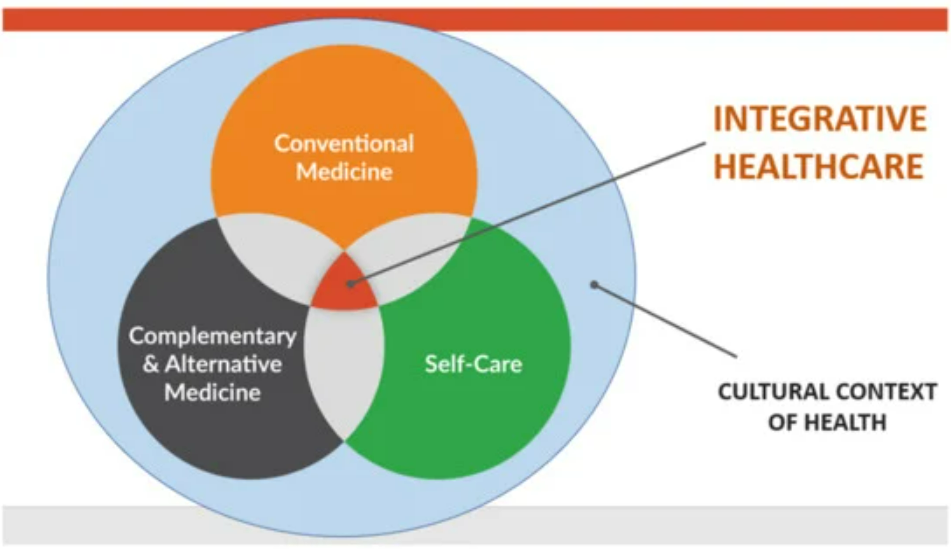I have been supporting cancer patients and their families for over a decade. One thing that I’ve learned is that when people pull together a team of providers to support their treatment AND their wellbeing they can move through this journey with a much more positive experience.
Receiving a diagnosis of cancer is like having the floor pulled out from under your feet. Everything gets turned upside down. Your mind is spinning worried about treatment, your family, your work, and of course your longevity. Frankly it is too much for one person to manage by themselves.
Ideally, you first pull in your emotional support team…your spouse, partner, children, parents, closest friends. The ones who will be there by your side throughout this journey. The people helping you make decisions, get food on the table, get you to your appointments, help with the logistics of life.
The next step is to pull together your health care team…beyond your primary doctor & oncologist. A team of health professionals who can guide and support you through this healing journey.
I want to share with you HOW to do this. How to pull together an integrative cancer care plan that will support your healing, keep you feeling surprisingly good, and help you stay cancer-free.
First, what is an “Integrative” cancer care plan?
The Cancer Treatment Centers of America defines it as “an integrative approach to cancer care that treats the disease with surgery, chemotherapy, & other conventional tools, while also supporting a patient’s strength, stamina, and quality of life with evidence-informed therapies”.
Oncolink.org defines it as “the use of complementary, or integrative, therapies along with conventional medicine. These therapies work together with standard treatment methods (surgery, chemotherapy, radiation) to treat the patient’s body, mind, and spirit. Integrative therapies can help with the goals of treatment, reducing side effects, distress relief, and may help with treatment results and adherence”.
For me, an integrative cancer care plan goes WAY beyond your prescribed treatment. It’s about blending the best of what medicine has to offer with traditional healing philosophies so we can support the health of the entire patient…not just treat the cancer. It can also help us uncover root causes or imbalances that may have allowed the cancer to grow in the first place. By adding in these additional healing strategies we can take greater strides to helping you heal the cancer and stay cancer-free.
Benefits of Integrative Medicine
Research shows us that patients who add integrative medicine to their health care have better clinical outcomes and a better experience overall.
This is because integrative medicine involves the optimal combination of all evidence-based approaches to help heal the person as a whole. Combining conventional care with drugless approaches, including complementary and alternative medicine (CAM), and behavior and lifestyle medicine (see image below). (https://www.mdpi.com/1648-9144/57/7/677/htm)

When we apply this blend of traditional treatment, with complementary & alternative therapies, & a focus on self care we can provide a truly holistic approach to your cancer journey…giving you the best possible chance of a full recovery & long-term prevention.
Treatment Support
The first goal is to remove the cancer from your body. It takes many years for cancer to grow and your body does everything it can to get rid of it naturally…with your immune system being the primary point of defense. When this is unsuccessful we need to intervene to help the body get rid of it AND to figure out why it wasn’t able to manage it on its own.
Whether you choose conventional or alternative strategies for treatment, we can bring in additional support with diet, supplements, fasting, & lifestyle strategies to help the treatment be as effective as possible while boosting your natural immunity. There are also many complementary therapies that you can bring in to enhance the effectiveness of your treatment should you need it. Some of these include off-label medications, IV-Therapies, Oxygen & Ozone Therapies, Infrared Sauna, and much more.
Patient Support
The next goal is to support your quality of life during treatment. We can do this by minimizing the side effects and symptoms from treatment while protecting your healthy cells from the toxicity of treatment.
We can also improve your energy, strength, & vitality during treatment with nutrition, supplements, movement, sleep support, meditation, emotional support, breathwork, forest bathing, and more.
All of these strategies will continue to support your long-term health & recovery post-cancer treatment while helping you stay cancer-free.
Additional Support
As I mentioned above, there are many therapies we can bring in for added support. However my goal is to always start with the least amount of intervention and see how your body responds. Depending on what’s working, what’s not, and how you’re feeling we can add in other therapies & strategies as needed.
Here is a sampling of some therapies that could be helpful along the way:
- Acupuncture
- Ayurveda
- Osteopathy
- Massage or other types of bodywork
- Reiki or other types of energy work
- Sound Healing
- Essential Oils
- Psychotherapy, Trauma Therapy, or other Emotional Healing Support
Putting It All Together
No matter how you look at it, it takes a TEAM to really support someone optimally throughout this journey. And if right now all you have is your oncologist, it’s time to start thinking about who else to add in.
Step 1.
Add in someone, like me, an Integrative & Functional Dietitian, to help you maximize your diet & lifestyle to create a body where cancer can’t thrive. This includes diving deeper into the potential root causes of your cancer in order to make meaningful changes to your physiology that will make it much harder for cancer to grow (now & in the future). If whatever got you here doesn’t get addressed, the risk of you going through this again is much higher.
Step 2.
Pull in your primary health care members; the people who will help you administer treatment and monitor your progress. This includes your oncologist, primary care physician, or even an integrative/functional oncologist. It can also be helpful to bring in additional providers to help with any symptoms or side effects you may be struggling with from treatment. In addition to someone like me who can help with symptom support you may also find relief with acupuncture, massage, osteopathy, reiki, or others.
Step 3.
Add in secondary support if needed. Depending on how well Steps 1 & 2 are working, you can always enhance treatment with other alternative providers or therapies. There is truly a treasure trove of strategies available to help your body heal. Pulling in deeper emotional, energetic, and spiritual support can also be added at this step.
The bottom line…there is A LOT you can do to support your healing, recovery, & long-term health. I hope this article has proven that to you and allowed you to start thinking about this journey in a broader, more holistic way.
If you’re ready to start designing YOUR integrative cancer care plan I would love to support you with Steps 1 & 2. Book a free Strategy Session and we can review your specific situation and how I might best be able to support you.
